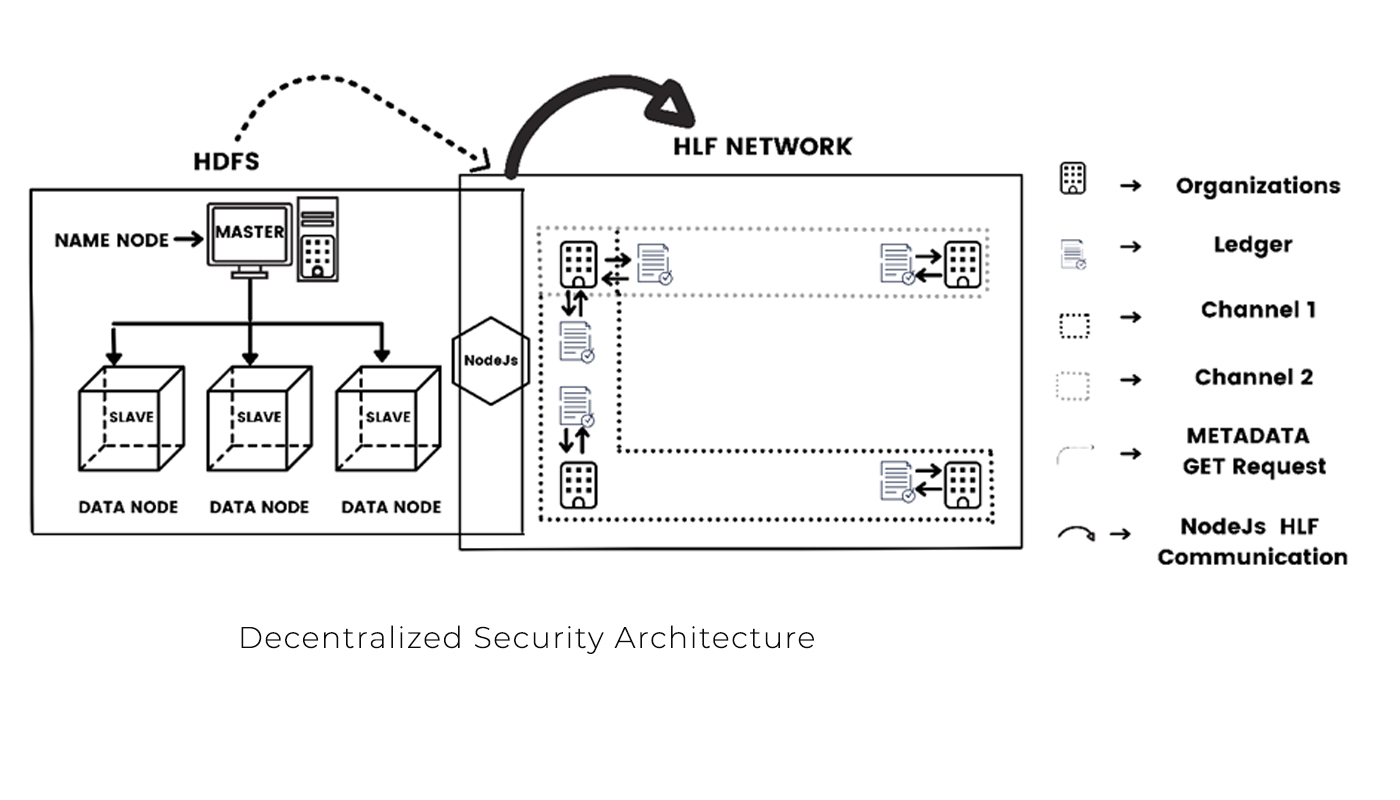The Department of Computer Science and Engineering is delighted to announce that Dr Rajiv Senapati and his research group; Abhiram Chakravadhanula, Jaswanth Kolisetty, Karthik Samudrala and Bharat Preetham have published a research article titled “A Novel Decentralized Security Architecture for the Centralized Storage System in Hadoop using Blockchain Technology” in the Scopus indexed IEEE 7th I2CT (The premier conference for the latest discoveries in Convergence in Technology in Asia Pacific).
Over the past decades, the Big Data ecosystem is experiencing a humungous explosion in the generation and exchange of information. Trading such delicate information can serve as a profitable knowledge resource in the present economy. However, serious concerns have been raised about the security and assurance of delicate data as the conventional safety architecture in centralized storage systems does not meet its nuanced requirements. Blockchain technology offers a promising solution for big data protection due to its decentralized nature. Through this research article, Dr Rajiv Senapati and his students intend to introduce a decentralized security architecture in centralized storage systems such as Hadoop to address its existing vulnerabilities.
Abstract of the Research
Big Data is huge in volume, diverse in information, and growing at flourishing rates. The major distributed file systems in the current market in Big Data Analysis include Apache Hadoop, Storm, Cassandra, Flink, Cloudera, and many more. Hadoop is an open-source framework divided into Hadoop Distributed File System (HDFS) and Map-Reduce. Hadoop plays a leading role in storing and processing Big Data in contemporary society as it is cost-effective and can manage large volumes of data in low-cost commodity hardware. HDFS is a type of Data Warehouse which is scalable and has fast access to information.
Metadata is the information about the data, such as which block is storing on what datanode, how many replications that block has, and on which datanodes those replications reside. In HDFS, this metadata is stored at a fixed place in namenode, and attackers can access the metadata and modify it without notice. Also, metadata is mutable, which means the attacker can erase his presence easily.
In this paper, to resolve this issue, we have provided a mechanism using blockchain technology that follows a decentralized architecture against the centralized architecture followed by HDFS. Hyperledger Fabric (HLF) is the blockchain proposed to be effective and trusted for such a purpose. HLF is a private blockchain with a distributed immutable ledger. The metadata will be stored in the ledger. If an attacker tries to modify the data, he cannot erase his presence as the ledger is immutable, unlike HDFS. Further, the work proposed in this paper can be extended in real-time HDFS with a secure ledger and multiple nodes.


